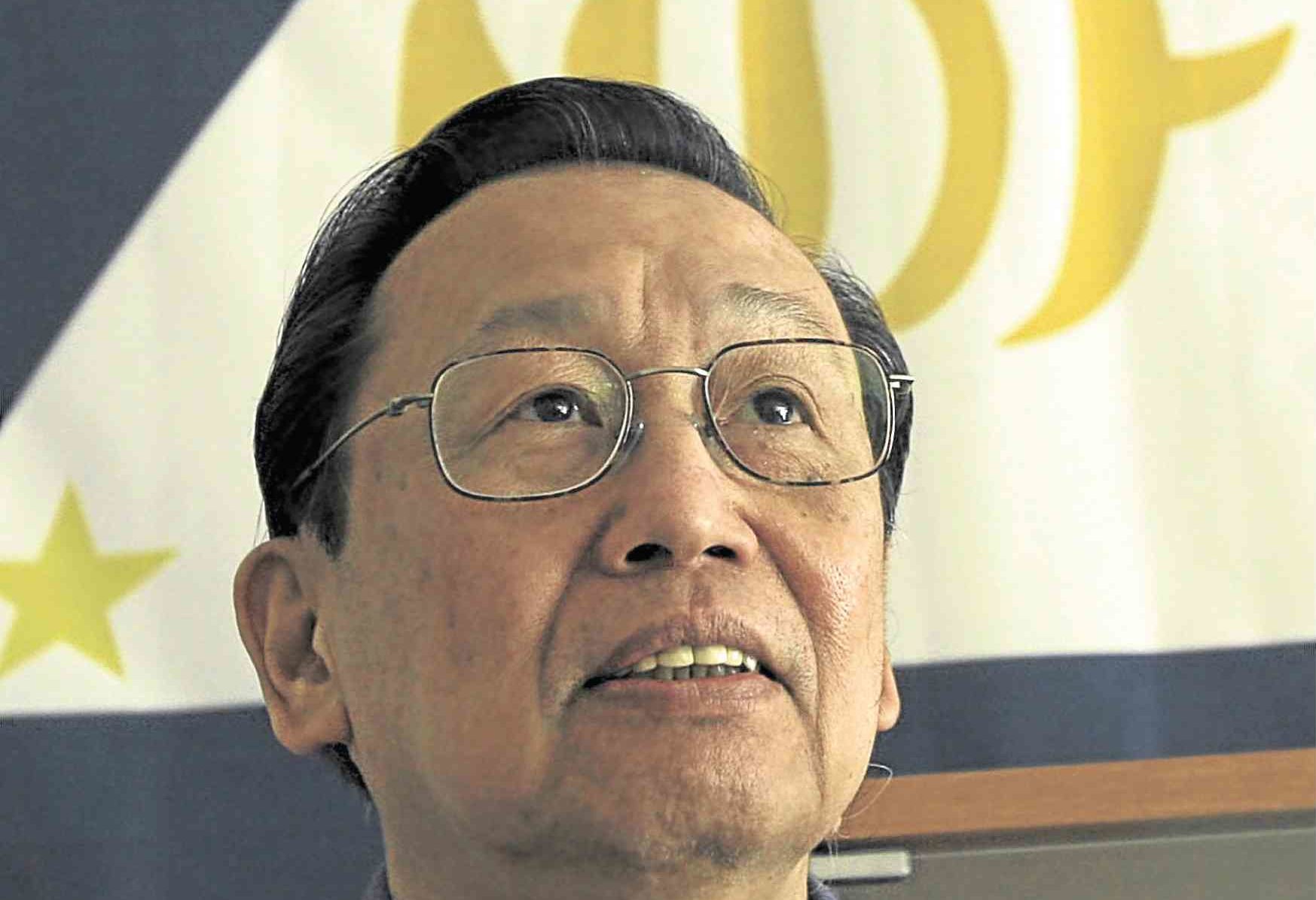MANILA, Philippines — The death of exiled communist leader Jose Maria Sison marks the end of the “greatest stumbling block to peace” in the country, the Department of National Defense (DND) said Saturday.
“The greatest stumbling block of peace for the Philippines is gone; let us now give peace a chance,” the DND said.
The DND added that Sison’s death is symbolic of the “crumbling hierarchy” of the Philippine communist movement.
“The death of Jose Maria Sison is but a symbol of the crumbling hierarchy of the CPP-NPA-NDF, which he founded to violently put himself in power,” the DND added in a statement, referring to the Communist Party of the Philippines, its armed wing the New People’s Army (NPA) and its political arm the National Democratic Front (NDF).
Sison died peacefully in a hospital in Utrecht, the Netherlands on Friday, at 8:40 p.m., Philippine time, according to the communist official publication Ang Bayan. He was 83.
The DND however lamented that with his death, Sison was not brought to justice and to answer for his alleged crimes.
“His death deprived the Filipino people of the opportunity to bring this fugitive to justice under our country’s laws,” they said.
The DND also called on Sison’s followers in the communist movement to turn away from Sison’s “violent and false ideology.”
“Five decades of brutal and bloody aggression against the state and the Filipino people have led to nothing but destruction and strife for thousands of Filipinos,” the DND said.
Meanwhile, the Armed Forces of the Philippines (AFP) said it hopes Sison’s successor will stop the movement’s armed struggle.
“It’s an opportunity for his successor, if there will be, to chart a new direction in promoting reforms. Hopefully, away from armed struggle,” AFP spokesperson Medel Aguilar told reporters when on the effects of Sison’s death.
